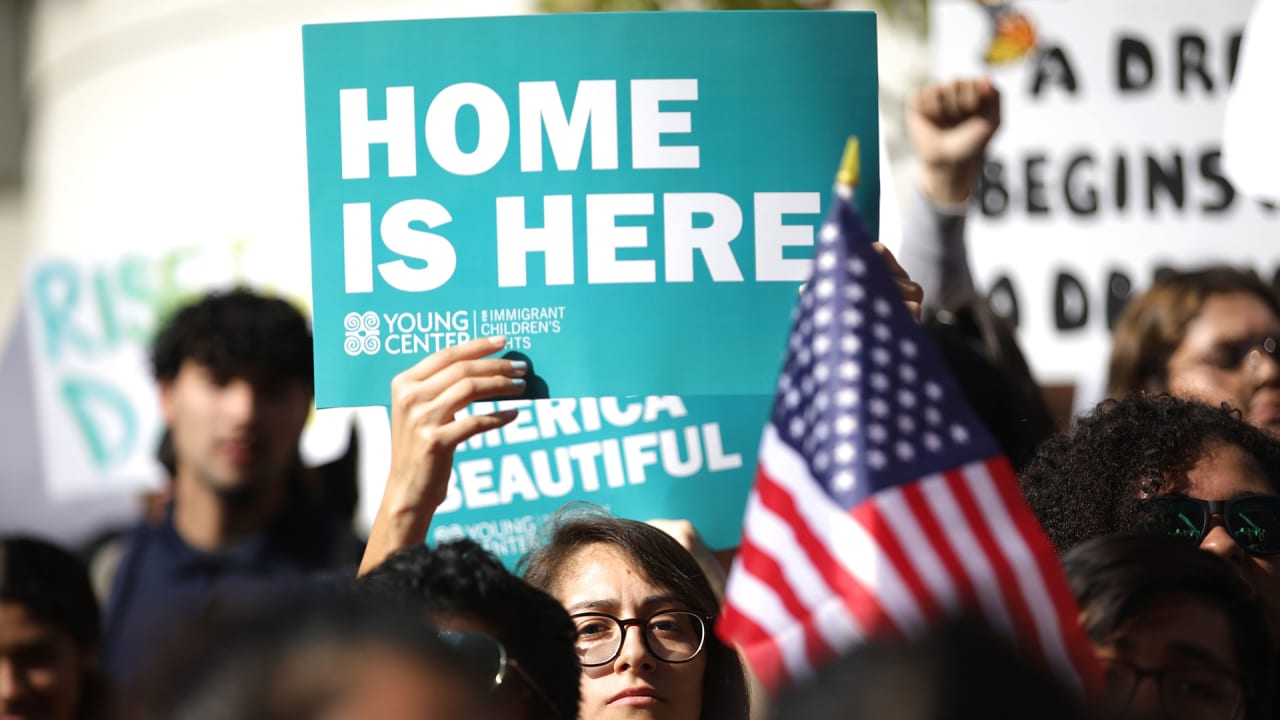[ad_1]

The Deferred Action for Childhood Arrivals, or DACA, is an Obama-era immigration policy that brought hundreds of thousands of the country’s undocumented immigrants out of the shadows, allowing them to work and shielding them from deportation. On Wednesday, the Biden administration finalized the policy, turning it into a federal regulation that generally codifies existing policies with limited amendments to preserve DACA. Here’s what you need to know about the new 453-page rule:
- The protections will go into effect soon. Issued by the Department of Homeland Security, the rule is set to be cemented on October 31, 2022, formalizing existing policies to protect DACA. Since 2012, over 600,000 eligible noncitizens who arrived in the U.S. as children were able to defer their deportation and have the opportunity to access a renewable, two-year work permit.
- The eligibility requirements are still the same. Applicants must prove that they arrived in the country under the age of 16 and before June 2007; are in school, graduated, or served in the military; and have not been convicted of a felony offense or any other serious crime.
- The federal rule does not expand eligibility. Those who applied later are still in limbo, including the 80,000 individuals who had their applications frozen during the Trump administration. The rule also doesn’t apply to the hundreds of thousands of undocumented prospective recipients who never applied for DACA in the first place.
- DACA is still at risk. Last July, a federal judge in Texas ordered to close the program to new applicants, ruling that the policy violates federal immigration law. The conservative-leaning Fifth Circuit Court of Appeals is expected to rule on the legality of the DACA program later this year.
United We Dream, the immigrant youth-led network that participated in the public comment period of the federal rule, pointed out that this move changes nothing. “Our opponents aren’t shy about their intent to detain and deport immigrants,” said Deputy Director of Federal Advocacy, Juliana Macedo do Nascimento. “While Congress must pass permanent protections for all, President Biden cannot hide behind the courts or Congress, he can take bold action now.”
[ad_2]
Source link

